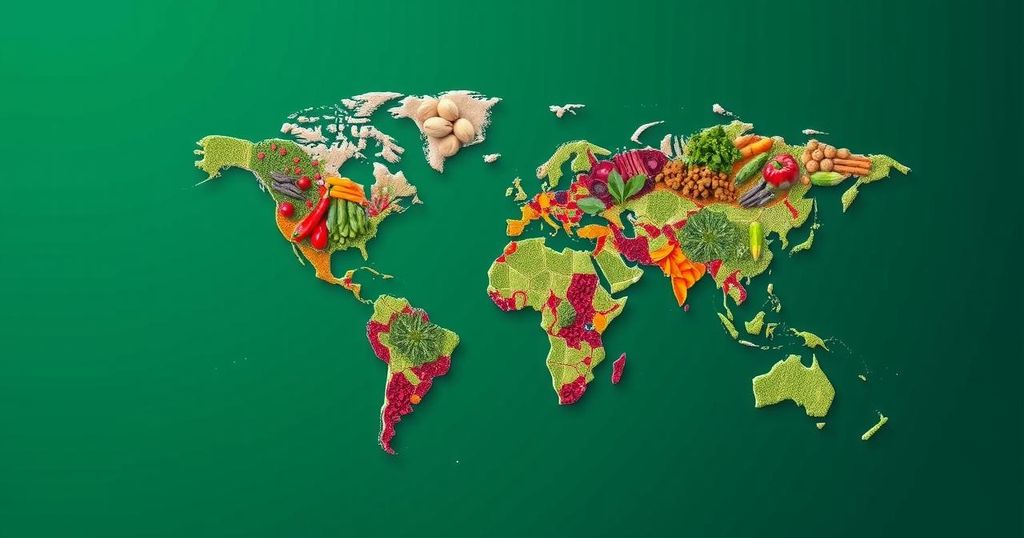At the G20 meeting in Rio de Janeiro, President Lula of Brazil launched the Global Alliance Against Hunger and Poverty, aiming to combat global hunger as a pressing humanitarian issue. He highlighted the unacceptable levels of undernourishment worldwide, urging action from global leaders. With support from 81 countries, the alliance reflects Lula’s vision for collaborative efforts against food insecurity. The summit emphasizes the urgent need for concrete actions to address these challenges, despite political tensions, particularly with Argentina’s leadership.
In an impactful commencement to the G20 meeting held in Rio de Janeiro, Brazilian President Luiz Inácio Lula da Silva introduced a significant initiative aimed at eradicating hunger, which he termed, “the ultimate symbol of our collective tragedy.” This summit, attended by leaders from 17 of the 19 G20 nations, marks Brazil’s presidency as it addresses pressing global challenges, including alarming levels of hunger. As President Lula reflected on the world’s deteriorating condition over the past 16 years, he emphasized that hunger and poverty—affecting 733 million people globally—stand out as a shameful affliction that demands urgent attention. President Lula’s call to action included the establishment of a Global Alliance Against Hunger and Poverty, which has garnered the support of 81 countries, demonstrating a collective commitment to tackling this critical issue. Initially, Argentina, led by President Javier Milei who had earlier expressed disdain for Lula’s administration, refrained from endorsing the alliance but ultimately joined after further discussions. Amidst this, President Lula welcomed global leaders at the Museum of Modern Art but noted the conspicuous tension during Milei’s first face-to-face meeting with him, highlighting the existing political rift. Despite these challenges, Lula articulated a resolute vision for the presidency, where addressing food insecurity is paramount. With 148 total signatories to the Global Alliance, which includes various stakeholders such as international organizations and philanthropic foundations, Lula’s aspirations for this summit are clear: to galvanize collective efforts toward meaningful change. “May this summit be marked by the courage to act,” he asserted, thereby stressing the need for decisive measures to combat hunger and poverty.
The initiative to combat hunger announced by President Lula during the G20 summit underscores an urgent global crisis. The United Nations’ Food and Agriculture Organization cites 733 million people suffering from undernourishment, exacerbated by the complexities of armed conflicts, climate extremes, and economic disparities. Brazil’s hosting of the G20 represents an opportunity to galvanize international cooperation to address these critical humanitarian challenges. The formation of the Global Alliance Against Hunger and Poverty seeks to unify diverse nations, organizations, and foundations in their quest to eradicate hunger on a global scale.
In summary, the launch of the Global Alliance Against Hunger and Poverty reflects President Lula’s commitment to addressing one of the most pressing issues of our time. The G20 summit serves not only as a platform for discussing economic and political agendas but also as a crucial forum for global leaders to collaborate on solutions to hunger and poverty. With significant backing from numerous countries and organizations, there is a renewed call for action to ensure that the fundamental right to food is upheld for all individuals, transcending political divides.
Original Source: www.theguardian.com






